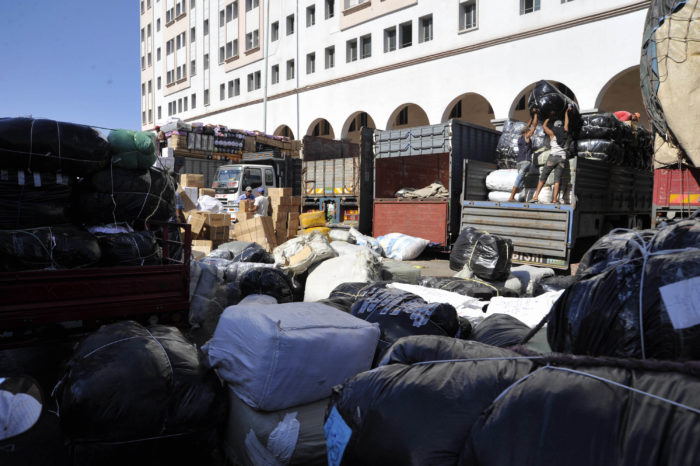The tax amnesty on cash and undeclared assets officially ended on Tuesday, December 31, 2024, with remarkable success. Introduced by the 2020 Finance Law and reinforced by the 2024 version, the measure allowed individual taxpayers to benefit from a very low tax rate of 5% on their previously undeclared income.
This exceptional measure covered liquid assets deposited in bank accounts, cash held in physical currency in the form of banknotes, movable and immovable property acquired but not used for professional purposes, as well as advances in current partner accounts, operator accounts, and loans granted to third parties.
The jackpot
As of now, no official figures have been released regarding the total amounts collected. However, professional sources confirm that the operation led to the regularization of over 100 billion dirhams in undeclared assets, including more than 60 billion dirhams in cash, which is expected to generate approximately 5 billion dirhams in tax revenue for the state.
Beyond the tax revenues collected by the General Directorate of Taxes (DGI), the operation helped absorb a significant portion of cash circulating in the economy and redirect it into the banking system at a time when the economy faces a severe liquidity shortage. A recent study by Attijari Global Research (AGR) highlighted a record banking liquidity deficit of 144.6 billion dirhams between December 5 and 11, 2024, which slightly eased to around 142 billion dirhams by the end of the year.
This deficit is further exacerbated by the surge in cash circulation, which has surpassed 428 billion dirhams, according to the latest figures from Bank Al-Maghrib, representing 30% of the national GDP—one of the highest rates in the world.

« Absorbing more than 50 billion dirhams of cash from the informal economy and injecting it into the formal system is a positive step, but it remains limited compared to the scale of the issue. It represents less than 15% of the total cash circulating in the economy, » notes economist Omar Bakkou in an interview with TelQuel.
A « political » issue
For his part, certified public accountant and economic analyst El Mehdi Fakir emphasizes the need for caution before drawing conclusions on what he considers a more political than economic measure. « It is important to assess the operation quantitatively, but that alone will not effectively curb the surge of cash in circulation. This amnesty, like those before it, was a political decision aimed at sending a positive signal and revitalizing the economic engine, » he explains.
Indeed, this is not Morocco’s first tax amnesty. In 1998, to stimulate the economy, restore confidence during a sluggish business climate, and address the state’s liquidity shortage, Abderrahman El Youssoufi implemented a similar measure upon taking office as Prime Minister.
The initiative was highly controversial at the time, even within business circles, which saw it as a reward for tax evaders at the expense of compliant, transparent companies. « We hoped to revive the economy by wiping the slate clean, but business leaders did not return the favor, » recalled economist and former Secretary of State in the transitional government, Saïd Saâdi, in a statement to TelQuel in 2020.
Following in the footsteps of El Youssoufi, the Benkirane government introduced a foreign exchange amnesty in 2014, paired with a 10% flat-rate contribution on assets held abroad. At the time, foreign exchange regulations prohibited owning property abroad without special authorization from the Office des Changes. The initiative led to the declaration and repatriation of approximately 28 billion dirhams.
Although such amnesty measures have injected funds into state coffers, their effectiveness in curbing cash circulation and the spread of the informal economy remains limited. In some cases, they may even have the opposite effect. « Tax fairness is a pressing issue today. The heavy tax burden on certain taxpayer categories often drives them to rely on cash and the informal circuit to avoid taxation. However, no one should use this pressure as an excuse to avoid contributing to the tax effort, which holds fundamental and sacred value, » emphasizes El Mehdi Fakir.
To effectively combat this issue, Omar Bakkou emphasizes the need to address the root causes. The surge in cash circulation is a structural problem in the Moroccan economy that has persisted for decades. It primarily results from a lack of trust in the economic system, a deficit in financial literacy among citizens, and a negative perception of tax policies.
“It is essential to adopt a comprehensive and consistent approach to combat cash circulation”
« If we don’t address the root causes, temporary measures like amnesties will not be enough to solve a structural problem. It is essential to adopt a comprehensive and consistent approach to combat cash, » he explains. The economist emphasizes the need for a profound transformation of the tax system to make it « fairer, more transparent, and better accepted by the population. »

To restore citizens’ trust in the banking system, expand financial inclusion, and accelerate the adoption of modern payment solutions, Omar Bakkou also calls for a reconsideration of how communication addresses the importance of contributing to the national tax effort and moving away from the informal economy. He suggests using new communication channels to reach a broader segment of the population.
Alongside these measures, other actions must be implemented to discourage tax evasion, as incentives and amnesties can sometimes unintentionally encourage continued informal activity.
« Regardless of the tax policy in place, there will always be economic actors who resist. It is essential to implement strict measures to push them toward greater transparency. The cost of non-transparency must be increased through severe penalties, making transparency the more beneficial choice. It’s a cost-benefit calculation, » he concludes.
To restore citizens’ trust in the banking system, expand financial inclusion, and accelerate the adoption of modern payment solutions, Omar Bakkou also calls for a reconsideration of how communication addresses the importance of contributing to the national tax effort and moving away from the informal economy. He suggests using new communication channels to reach a broader segment of the population.
Alongside these measures, other actions must be implemented to discourage tax evasion, as incentives and amnesties can sometimes unintentionally encourage continued informal activity.
« Regardless of the tax policy in place, there will always be economic actors who resist. It is essential to implement strict measures to push them toward greater transparency. The cost of non-transparency must be increased through severe penalties, making transparency the more beneficial choice. It’s a cost-benefit calculation, » he concludes.
Written in French by Safae Hadri, edited in English by Eric Nielson




